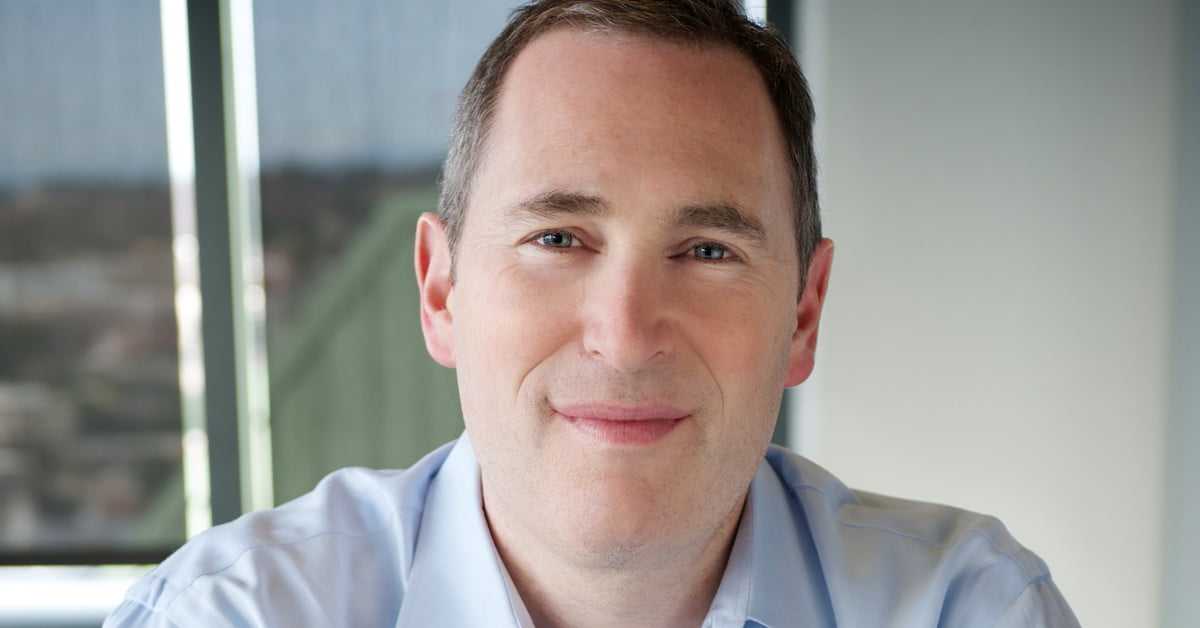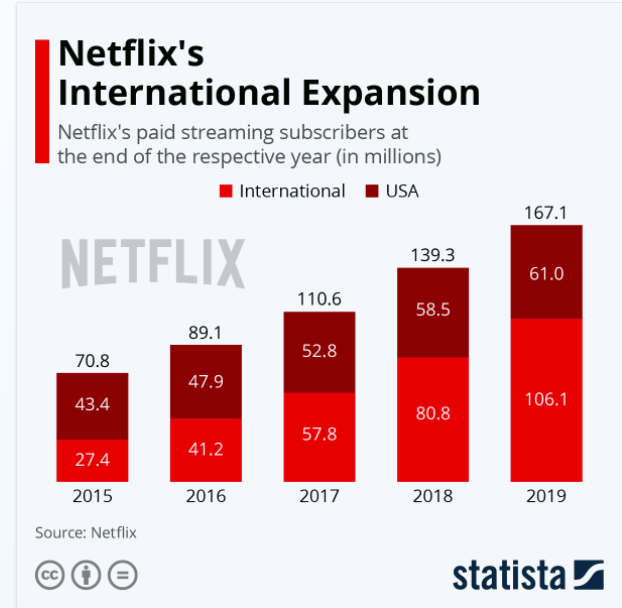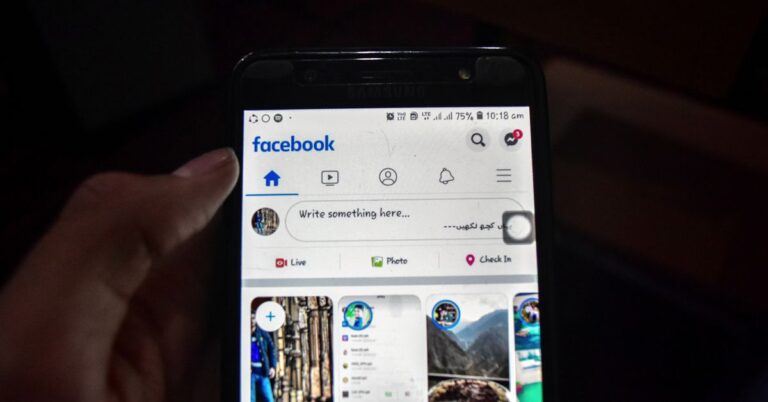
After 27 years, Amazon will have a new CEO for the first time. When Jeff Bezos steps down in July, he’ll be replaced by Andy Jassy, a company executive who joined Amazon in 1997, only three years after its founding. Jassy has for the last 15 years run Amazon Web Services, Amazon’s unsexy but innovative and highly profitable cloud computing business that controls about a third of the cloud industry and powers websites big and small all across the globe.
Jassy will be taking the helm as Amazon’s power reaches new heights. The pandemic has boosted online shopping, and Amazon topped $100 billion in quarterly revenue for the first time — it reported $125 billion, actually — during the last three months of 2020 alone. But with that growing power, Amazon is facing unmatched scrutiny — from antitrust regulators, from labor activists pushing to unionize Amazon warehouses, and from politicians who believe no one company should have such an influence in industries as varied as retail, logistics, and cloud computing.
With Amazon’s outsized influence on the economy and society, a couple of obvious questions come to mind. How will Jassy’s arrival as CEO impact the 1.3 million people who work for Amazon? And more importantly, what will his tenure mean for the hundreds of millions of people who are directly or indirectly affected by Amazon’s products and services across the globe?
There’s a lot we can’t be sure of, since Jassy doesn’t take over for a few more months and Bezos will remain active on new company projects as executive chairman. The Amazon founder’s level of involvement at that point can’t yet be known. But Recode spoke to more than a half-dozen former Amazon executives who’ve worked with, or for, Jassy in the past to glean insights about what the new CEO’s arrival might mean for the company and the customers who rely on it, competitors who fear it, and employees who work for it.
In Jassy, these sources described a company leader who shares a lot of attributes with Bezos, and this is no accident. Bezos has created a set of company practices and leadership principles inside Amazon that are espoused by top leaders like Jassy who eventually rise to the top at the company. Those frameworks are meant to guarantee not only a steady drumbeat of new innovative products and services but also a stable layer of company leadership below Bezos who exhibit a similar level of unmatched ambition that the founder does.
For Amazon under Bezos, though, that ambition to infiltrate new industry after new industry, and “invent on behalf of customers,” has created blind spots and collateral damage that will soon fall on Jassy to address. Here’s a look at what he might be like in this new role.
How much is Jassy like Bezos?
Table of Contents
There are certainly differences in personality and interests between the two leaders. Jassy, for example, is a huge sports fan, unlike Bezos. But the former Amazon execs who spoke to Recode largely focused on the many similarities between the two leaders. The reason for some of the similarities can be traced back to one of Jassy’s first roles at Amazon.
After initially working as a marketing manager for Amazon’s e-commerce business, Jassy served as Bezos’s first technical adviser, a role that would become highly coveted among high achievers at Amazon and is known internally as the “shadow.” Employees chosen for this role spend between one and two years accompanying Bezos to every meeting and serving as a sounding board for the chief executive. But a key part of the shadow role is also to learn how Bezos thinks and how he arrives at decisions.
“Where Jeff is underrated is he’s a great teacher,” said Colin Bryar, a former Amazon executive and Bezos’s second “shadow” who’s the co-author of a new book called Working Backwards: Insights, Stories, and Secrets from Inside Amazon. “He would come up with insights no one else comes up with, but he would spend the next two to three minutes to explain how he got there. That’s where I think Jeff shined, and Andy learned a lot of that, too.”
Amazon and Bezos also like to boast about its “customer obsession,” and former Amazon executives say Jassy is a believer and practitioner of this ideal too. This customer obsession has led to historic breakthroughs like the creation of Amazon Prime, the internet’s most successful membership program, as well as the myriad AWS tools that everyone from startups to giant corporations use to run their online businesses. But that same customer obsession plays a role in creating real-life costs for that success — whether it be a front-line workforce that some say Amazon pushes too hard, marketplace sellers who say Amazon uses data to unfairly compete against them, or the sale of AWS facial recognition tools to law enforcement that critics say can be abused.
One of those company critics is Tim Bray, a former AWS VP who left the company very publicly last year in the wake of Amazon’s firing of warehouse workers. Bray wrote a scathing blog post announcing his exit, citing “a vein of toxicity” running through Amazon’s culture. But reached by phone on Tuesday, Bray was effusive in his praise of Jassy.
“Unqualified, I’m a fan,” Bray told Recode. “He’s an absolutely terrific executive.”
Bray has had a 40-year career in the tech industry, but said, “AWS was by a wide margin the best-managed place I’ve worked, including places I was the CEO.”
Bray, who said Jassy lives and breathes the Amazon ideal of “customer obsession,” recounted an anecdote of a colleague prepping him for a meeting with Jassy. Bray was told to position any arguments he was going to make for one decision over another by using AWS customer feedback as his reasoning. The tactic worked.
“I think of Andy as the world’s greatest product manager,” Bray said. “The [product manager] role is to serve as the bridge between the engineers building and the customers who need the stuff, and make sure they understand each other and the right things get built.”
So how should one account for the disconnect between Bray’s screed about Amazon upon leaving the company with this praise for its new CEO? The former AWS VP said he doesn’t believe Jassy played a role in the whistleblower firings that set Bray off.
Jason Kilar — currently the CEO of WarnerMedia and the former Hulu CEO who used to be a colleague of Jassy’s at Amazon — drew another comparison to Bezos.
“He’s just got unusually high judgment,” Kilar said of Jassy. “The easiest way to describe it is that Andy is right a lot. There are millions of decisions that get made at a company like Amazon every day and what’s important is that you get a lot of those decisions — and the most important decisions — right.”
Jassy is also the rare corporate leader who possesses the ability to quickly understand the in-the-weeds details of a project or problem, but also the broader context of a given situation, according to Bill Carr, the former VP of Amazon Prime Video and the co-author of the new Working Backwards Amazon book.
“The hallmark of most great leaders at Amazon is they combine passion and customer obsession with the ability to dive deep into the details, the metrics, the [profits and losses],” Carr told Recode. “But a great leader at Amazon can operate at 50,000 feet above sea level as well, and Andy is one of those people.”
Jassy’s attention to detail may sometimes come across as extreme. The top executive still reviews every Amazon Web Services press release before publication, according to a recent profile on Business Insider.
How will Jassy’s new role impact Amazon’s ambition?
Like Bezos, Jassy’s ambition is exemplified by an ultra-competitive nature. He’s the rare Amazon executive who publicly criticizes competitors — the company isn’t supposed to be “competitor-focused” after all — most notably at AWS’s annual industry event called re:Invent.
Jassy also signed off on the company’s public dispute with the Trump administration over the government’s decision to award a $10 billion cloud computing contract to Microsoft instead of Amazon.
But perhaps more importantly, Bezos picked a successor who has exemplified ambition in a different way: through invention. Bezos considers Amazon an invention company — not simply a retailer or a media company or a cloud computing giant. Some version of the word “invent” appeared eight times in the founder’s letter to employees announcing the CEO transition.
So it makes sense that Bezos chose a successor who played a crucial role in inventing Amazon Web Services — the company’s fastest-growing and most-profitable business division. By launching AWS, Jassy didn’t just help create a new business for Amazon; he helped create a new industry in tech. It helped change the game for all of the business world, which is why major companies like Zoom and Netflix and ESPN rely on AWS to power their businesses and services, even if they compete with Amazon in other ways. Instead of internet companies having to set up data centers, AWS made it possible for companies to no longer have to build their own data centers. Instead, they can simply lease computing power and data storage space from Amazon to get up and running fast, and to scale up and down much more easily.
Since then, Amazon Web Services has expanded its offerings in myriad ways, including into controversial areas like facial recognition software. Civil rights groups, like the ACLU, have argued that the technology “is primed for abuse in the hands of governments” relying on it as a surveillance tool and alleged that the technology is biased against people of color. In the wake of the Black Lives Matter protests last summer, Amazon announced a one-year moratorium for police use of the technology, and called on Congress to publish federal guidelines.
But inevitably, the growth of AWS after being started inside of an online retailer speaks to Jassy’s ability to build teams that disrupt industries that seem far afield from Amazon’s origin.
“He’s an inventor,” Kilar told Recode.
Amazon and Bezos also developed other backstops to try to ensure that the company will keep creating new business lines and products well into the future, no matter the CEO: internal processes — like the company’s famous “working backwards” documents — as well as the company’s 14 Leadership Principles.
“Jeff invented not just a lot of products but a new way to run a company, what he calls and we call an invention machine,” says Carr, the former Amazon VP and the other co-author of the Working Backwards book.
How will Jassy handle mounting scrutiny of Amazon?
Amazon’s success in many industries has made it popular with customers. But the company’s varied pursuits — and how it achieves them — have also led to unmatched scrutiny. Jassy’s time at AWS provides some insights into how he’ll handle the broader corporation’s even bigger problems.
2020 was a very good year for Amazon from a business perspective, but a very bad year from a scrutiny perspective. So Jassy will inherit the company at a turning point. Customers continue to shop on Amazon, use AWS tools, and watch its video streaming service in record numbers, but its longtime place as one of the most beloved companies is in danger as criticisms mount from many angles and in many parts of the world.
Amazon has faced public criticism from labor activists and politicians — as well as from some of its own employees — over its treatment of front-line workers. During the early days of the pandemic, there was backlash over the firing of employees who spoke out about those concerns, and a subsequent media firestorm when leaked notes exposed that the company’s top lawyer labeled a Black warehouse organizer that Amazon fired as “not smart, or articulate.” Amazon is now facing a union vote at one of its Alabama warehouses, which, if successful, could drastically impact how Amazon manages its vast front-line workforce.
Bezos was also forced to testify before Congress for the first time ever amid an antitrust investigation that culminated in a report accusing Amazon, as well as Apple, Facebook, and Google, of anti-competitive practices that need to be reined in. (The European Union announced antitrust charges against Amazon in November.) Meanwhile, the Federal Trade Commission (FTC) has been probing Amazon’s business practices, and on Tuesday announced Amazon would pay $61.7 million in a settlement over back tips owed to its delivery drivers. Recode also recently reported that one of Amazon’s sharpest antitrust critics, Lina Khan, is gaining traction in a bid to become one of the agency’s five commissioners.
And again, Jassy’s own organization, AWS, has invited its own intense scrutiny in recent years, namely for selling its technology to law enforcement. In an interview at Recode’s 2019 Code Conference, Jassy defended the company’s facial recognition initiative, Rekognition, while calling for the federal government to introduce national guidelines. “Just because tech could be misused doesn’t mean we should ban it and condemn it,” he said.
In response to a question about Amazon continuing to sell the software in the face of employee anger, Jassy cited one of Amazon’s leadership principles, which is “Have backbone; disagree and commit.” Translation: “We heard your objection, employees. But I disagree.”
Under Jassy, AWS has also continued to do business with Immigration and Customs Enforcement (ICE), despite protests from internal and external activists pressuring the company to cut ties with the government arm responsible for immigrant family separations.
But if the Rekognition and ICE situations can tell us anything about Jassy, it’s that he, like other top Amazon executives, won’t bend to internal or external pressure that he doesn’t agree with. After all, it took a once-in-a-generation national racial reckoning to get Jassy and Amazon to issue the moratorium on police use of Rekognition in the first place.
Looking ahead, Jassy should get used to more scrutiny, but he’s had some practice at handling it and has shown glimpses of how critics and employees alike should expect him to handle the bigger stage.
“I don’t think it’s going to be in any way new to him in terms of the spotlight or the expectations folks have for him, both internally and externally,” Kilar, the WarnerMedia CEO and former colleague, told Recode.






